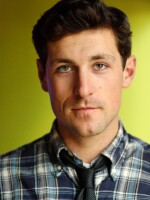ROBERT SIEGEL, HOST:
Finally this hour, the sound of home. Here in the U.S., accents vary widely from Boston to St. Paul, Chicago to Tupelo. But it turns out accents from one place also vary widely over time, compare say a Philadelphia accent from 30 years ago to a Philly accent today. That is exactly what researchers at the University of Pennsylvania did. And here's Zack Seward from member station WHYY to tell us what they heard.
ZACK SEWARD, BYLINE: Students of Penn linguistics professor Bill Labov have been walking around some 89 Philadelphia neighborhoods for four decades. At the school's linguistics lab, they have shelves and shelves of recorded conversations from Philadelphians born in 1888 all the way to 1992.
JOE FRUEHWALD: It's sort of like a history of audio recording back here.
SEWARD: PhD student Joe Fruehwald helped develop a new computer software for analyzing the shifting accents in that trove of sound. In a new study, he and Labov crunched a million measurements from a century's worth of Philadelphians.
FRUEHWALD: The Philadelphia accent isn't fading away so much. We want to emphasize that. It's just changing in a different direction from where it was going before.
SEWARD: Fruehwald says some key vowel sounds used to be more Southern. Now, on balance, Philly's dialect is more like other Northern accents. But first, consider an archetype. This is Celeste. She was 42 when this was recorded in South Philadelphia in 1973.
(SOUNDBITE OF ARCHIVED RECORDING)
CELESTE: The Salvation Army ran a beautiful thing. It was only coffee and doughnuts. There was no drinking and soda and music. All night, you'd dance, dance, dance.
SEWARD: Now forget those amazing dances at the end there. Focus instead on the O in soda.
(SOUNDBITE OF ARCHIVED RECORDING)
CELESTE: Soda.
SEWARD: In the '70s, Fruehwald says, two types of O sounds were becoming increasingly extreme in longtime Philadelphians.
FRUEHWALD: The sound in ow, sound, or now, or house. And also with oh, so sounding more like soda and phone and home.
SEWARD: But the data show that that trend actually reversed starting with Philadelphians born in the '50s and '60s. And while O's have gotten less Philly, an I sound has done the opposite. Here's a 1985 recording of a man born in 1901.
(SOUNDBITE OF ARCHIVED RECORDING)
UNIDENTIFIED MAN #1: This particular night, they came to the store. When they closed up, it was about 11, 12 o'clock at night.
FRUEHWALD: Night, that's how Philadelphians spoke around the turn of the century.
SEWARD: Fruehwald then fast-forwards to a man born in 1991.
(SOUNDBITE OF ARCHIVED RECORDING)
UNIDENTIFIED MAN #2: We were at a party, and we got in, like, this, like, really big fight, like not a really big fight, but, like, there was, like, this fight and me and him were arguing and stuff.
FRUEHWALD: Fight, which is the new sort of very clearly Philadelphian sound.
SEWARD: The researchers say that I thing is surprising because the clear trend applies to almost all white Philadelphians the study examined. Now, you may be asking what the point of all this is. The Penn researchers say there's no clear answer for why the Philly accent has zigged and zagged, but Bill Labov says regional accents will always be evolving.
BILL LABOV: Local dialects are not disappearing. They're getting stronger except in the South. But in the Great Lakes region, in Canada, in Pittsburgh, in Philadelphia, we find that linguistic change is alive and well.
SEWARD: Southern accents may be unfairly stigmatized, the researchers say, but dialects are generally hard to shake. Why that's the case in an era of ubiquitous mass media probably speaks to the lasting imprint of face-to-face interaction in childhood.
FRUEHWALD: If you come to Philadelphia, your kids will speak like their peers.
SEWARD: Fruehwald says studying accents is a way to learn new things about language and society.
FRUEHWALD: And to the extent that we can spark any pride in people for the accent and dialect that they do have, that's a bonus.
SEWARD: Spoken like a true Philly native. For NPR News, I'm Zack Seward.
AUDIE CORNISH, HOST:
You're listening to ALL THINGS CONSIDERED from NPR News. Transcript provided by NPR, Copyright NPR.

